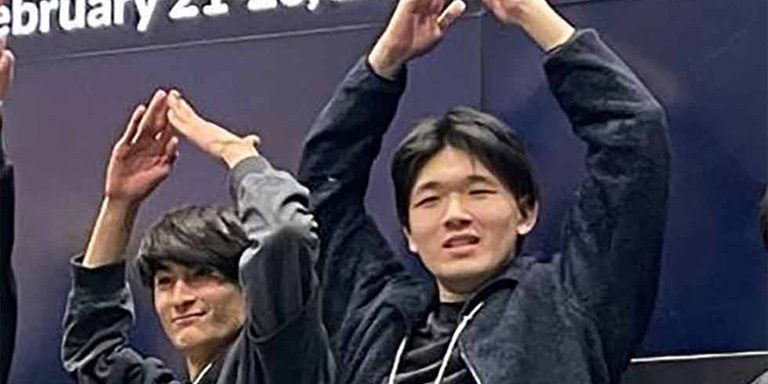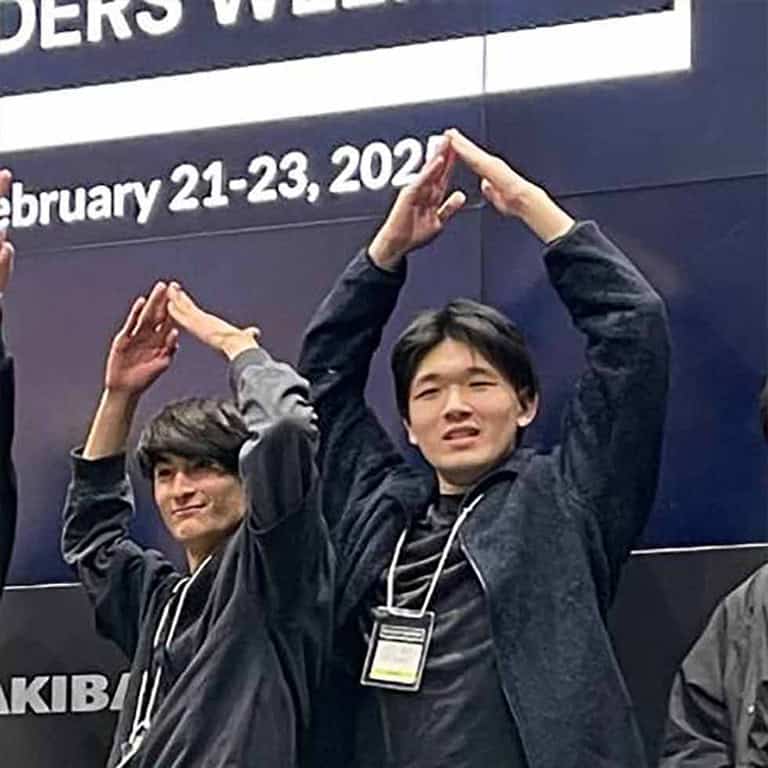(Salesian Polytechnic, Machida Tokyo) – Two students from the Salesian Polytechnic College of Technology have demonstrated innovation and global vision at Builders Weekend, a three-day international hackathon held in February 2025.
Miro Ogawa Vagre, a fourth-year student in the Department of Mechanical and Electronic Engineering, and Kei Takahara, a fourth-year student in the Department of Electrical Engineering, joined team “FUJI” alongside four industry professionals they met during the event. Together, they developed “AiVoC”, an AI-powered language learning application that won a corporate award.
A New Way of Learning Languages
The AiVoC application is designed to meet the demands of today’s increasingly globalized society. Unlike traditional flashcard tools, it uses artificial intelligence to create personalized, context-driven exercises tailored to the learner’s profile and real-life situations. By integrating gamification and practical applications, the app accelerates learning and promotes deeper engagement beyond memorization.
Technologically, AiVoC was built using TypeScript, React, and CSS for the front end, the Groq API for back-end functionality, and PostgreSQL for database management. The team envisions a sustainable business model combining advertising, subscriptions, and partnerships with companies, while continuing to expand the app’s capabilities beyond AI-generated flashcards.
A Culture of Innovation at Salesian Polytechnic
The success of Miro and Kei reflects the broader culture of innovation fostered at the Salesian Polytechnic College of Technology. The institution is deeply engaged in cutting-edge research and industry-academia collaboration, particularly in the field of autonomous electric vehicles (EVs).
Since 2022, students and faculty have been developing a compact self-driving EV prototype equipped with LiDAR sensors, stereo cameras, and four-wheel steering technology. This initiative, carried out in collaboration with external companies and graduates, demonstrates how industry and academia can come together to create practical solutions for mobility, sustainability, and society at large.
Educating for the Future
Whether through award-winning AI applications or pioneering autonomous driving projects, the Salesian Polytechnic College of Technology embodies the Salesian educational mission: to empower young people with knowledge, skills, and creativity to respond to the challenges of today and tomorrow.
As seen in the autonomous EV initiative, the college continues to provide its students not only with a strong academic foundation but also with opportunities to design, experiment, and innovate in ways that contribute meaningfully to society.
Source: Salesian Polytechnic


